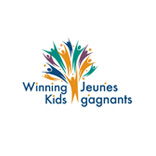The Children’s Aid Society (CAS) , also known as Family and Children’s Services (F&CS), is a non-profit agency working in local communities to provide help and support to children and their families. Established under the authority of The Child and Family Services Act , the CAS is a non-profit corporation formed by concerned people in each community. The CAS is operated by a board of directors elected from the local community and by the membership at large. Board members have a specific interest in the welfare of children and offer individual skills to assist in running the agency. The board of directors reflects the opinions of the community it serves. Programs and services are developed in response to the needs of children and families in the local community.









